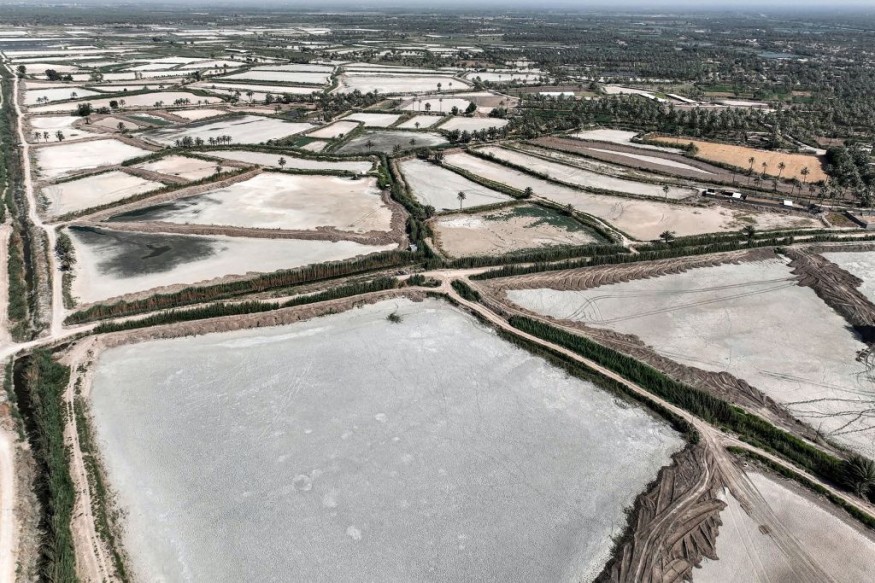
As a result of the ongoing four-year extreme drought crisis, fish farms in Iraq have dried up.
Fish Farms vs. 4-Year Extreme Drought
Water consumption for some reasons, like agriculture irrigation, has been severely constrained by government regulations, and authorities have shut down unlawful activities they had previously disregarded.
Unauthorized fish farms have been under investigation since late May. Omar Ziad, a villager from Iraq, has worked in the fish farming business since 2003 and was one of the unregistered fish farm owners.
His family was forced to watch helplessly as the water resources ministry's personnel sealed the seven fish ponds his family owned when water conservation initiatives began.
Here, Ziad, his father, and seven brothers would raise carp, which Iraqis used to produce their popular grilled fish meal known as masguf, surrounded by pastures and towering palm trees.
The family made between US$1,300 and US$2,600 per month from the farm, which could hold up to 50,000 fish at full capacity. This is significantly more than many other families in the nation.
Ziad, who also holds a teaching position, asserted that they would split the profits.
However, since all but five of the village's 80 fish ponds closed, the price of carp has virtually doubled, he said and is now selling for more than 8,000 dinars (US$6) per kilogram. He continued that they sold their fish "cheaply."
Lowest Point of Strategic Water Reserves
Some ponds in their village are still filled with water. According to Ziad, these were saved since their proprietors held the required licenses.
Iraq's water supply is in a terrible situation, making it one of the five nations listed by the UN as being most affected by some climate change consequences.
Baghdad also blames upstream dams constructed by neighboring Turkey and Iran for the Euphrates and Tigris rivers' alarmingly low water levels, which have been caused by declining rainfall over the previous four years combined with rising temperatures, Phys Org reports.
Some ponds in their village are still filled with water. According to Ziad, these were saved since their proprietors held the required licenses.
Iraq's water supply is in a terrible situation, making it one of the five nations listed by the UN as being most affected by some climate change consequences.
Baghdad also blames upstream dams constructed by neighboring Turkey and Iran for the Euphrates and Tigris rivers' alarmingly low water levels, which have been caused by declining rainfall over the previous four years combined with rising temperatures.
5000 Unlicensed Fish Farms
Shamal said that officials continue to permit movable fish tanks that are submerged in rivers and that around half of the approximately 5,000 unlicensed fish farms in Iraq have been shut down.
The Iraqi Association of fish farmers president, Ayad al-Talibi, stated that while he accepted the closure of unauthorized ponds, he questioned if the water that was conserved was used appropriately.
Iraq produced roughly one million tonnes of fish annually before the May crackdown, but Talibi told official television Al-Ikhbariya that production has now fallen to 190,000 tonnes.
River fishing has been impacted by the water problem.
High salinity in the Shatt al-Arab River, where the Euphrates and Tigris rivers meet before overflowing into the Gulf, has made fishing in far southern Iraq difficult.
Every year, less freshwater flows down from the north, causing the riverbed to progressively become saltier.
Lower water levels, according to a Reuters piece from the month before, have also boosted evaporation thus rendering the water more salty.
71-Year-old fisherman Khdeir Aboud claimed that there are no longer any fish in freshwater, which used to support a variety of fish.
He complained that his current small wage wasn't enough to maintain a household. According to Aboud, there are only a few elderly fishermen left because the majority have left the industry in favor of odd employment, Channel News Asia reports.
© 2025 NatureWorldNews.com All rights reserved. Do not reproduce without permission.





